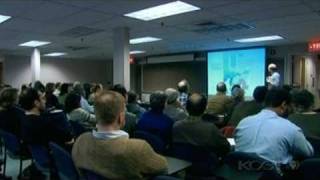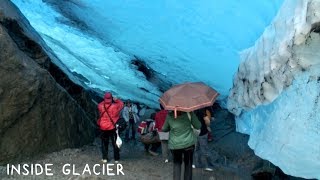Saturday, 03 January, 2026г.
















Где искать: по сайтам Запорожской области, статьи, видео ролики
пример: покупка автомобиля в Запорожье
Global Warming - Dimming the Sun - 04
Dimming the Sun
PBS Airdate: April 18, 2006
NARRATOR: He warned us, more than 25 years ago, that human activity was changing the Earth'sclimate. Since then, the world has gotten hotter, and NASA scientist James Hansen's warning has been echoed by the vast majority of climate scientists everywhere.
Google is proud to support NOVA in the search for knowledge: Google.
Major funding for NOVA is provided by the Howard Hughes Medical Institute, serving society through biomedical research and science education: HHMI.
And by the Corporation for Public Broadcasting, and by contributions to your PBS station from viewers like you.
http://www.pbs.org/wgbh/nova/transcripts/3310_sun.html
JAMES HANSEN: In a way, it is unfortunate that the small particles were in the atmosphere because we would have realized much earlier that the...how strong the greenhouse effect is, and would have had more time to make the adjustments that are going to be necessary to slow down and eventually stop the growth of greenhouse gases.
NARRATOR: Despite the cooling from global dimming, scientists agree that over the past century or so, average temperatures have risen between .6 and .8 degrees Celsius, about one to one and a half degrees Fahrenheit.
The increase, small as it may seem, is very fast by the standards of Earth history, but now we face something much faster. Ironically, if we keep bringing particle pollutants down—with great benefits to health—but continue pumping greenhouse gases into the atmosphere, Peter Cox believes we could be creating the worst possible combination for global temperatures.
PETER COX: We're going to be in a situation, unless we act, where the cooling pollutant is dropping off while the warming pollutant is going up. CO2 will be going up and particles will be dropping off, and that means that we'll get an accelerated warming. We'll get a double whammy. We'll get reducing cooling and increased heating at the same time, and that's, that's a problem for us.
JAMES HANSEN: If the particle forcing is what we estimate, about minus-1.5 watts, that would imply that removing that forcing would cause a global warming of more than one degree Celsius. That's more than the warming that we've seen already, so this is a huge factor.
NARRATOR: If we continue as we are, combining reduced air pollution with an increase in greenhouse gases, temperatures could rise by a further two or even three degrees Celsius. That's as much as five degrees Fahrenheit by mid-century, much sooner than current models predict.
JAMES HANSEN: But, in my opinion, three degrees Celsius is not the level of dangerous interference; that's the level which guarantees disaster.
NARRATOR: James Hansen is particularly worried about what this rise in temperature would do to the Greenland ice sheet. Even at today's temperature, there are signs that substantial melting is already underway.
JAMES HANSEN: It has been overlooked how sensitive ice sheets are to global temperature. We can see that in the last year, the mass of Greenland decreased by 200 cubic kilometers of ice. That's a lot of ice.
I cannot imagine that the ice sheets could survive more than a few centuries with a three-degree Celsius warming. So that would mean a sea level rise of several meters per century, and it would just continue. And once that starts, it's out of our control.
NARRATOR: The last time the Earth was three degrees warmer was 3,000,000 years ago, when there was a natural increase in the level of greenhouse gases in the atmosphere. The geological evidence indicates that melting ice raised sea levels 25 meters higher than today.
JAMES HANSEN: In the United States, New York City...with a 25-meter sea level rise, most of the city would be under water; Washington, D.C....much of it would be under, but there are other regions that would be...suffer much more; Florida...almost the entire state would be under water; and, likewise, Louisiana. So we really can't afford to go down that path.
NARRATOR: And it would not just be coastlines that would be transformed if the Earth warms by three degrees. Climate models suggest the Amazon basin would become much drier and vulnerable to fire. What's left of the world's greatest tropical rainforest could simply burn away, and, in the process, release still more carbon dioxide, further accelerating global warming.( Continued at - http://www.pbs.org/wgbh/nova/transcripts/3310_sun.html)
Теги:
Global_Warming Narrator_Kathryn_Walker Directed_by_Duncan_Copp Dr_JAMES_HANSEN Dr_DAVID_TRAVIS Dr_GERALD_STANHILL Dr_BEATE_LIEPERT PROF_GRAHAM_FARQUHAR Dr_MICHAEL_RODERICK MICHAEL_BUERK Dr_LEON_ROTSTAYN Dr_PETER_COX
Похожие видео
Мой аккаунт


 У вашего броузера проблема в совместимости с HTML5
У вашего броузера проблема в совместимости с HTML5


